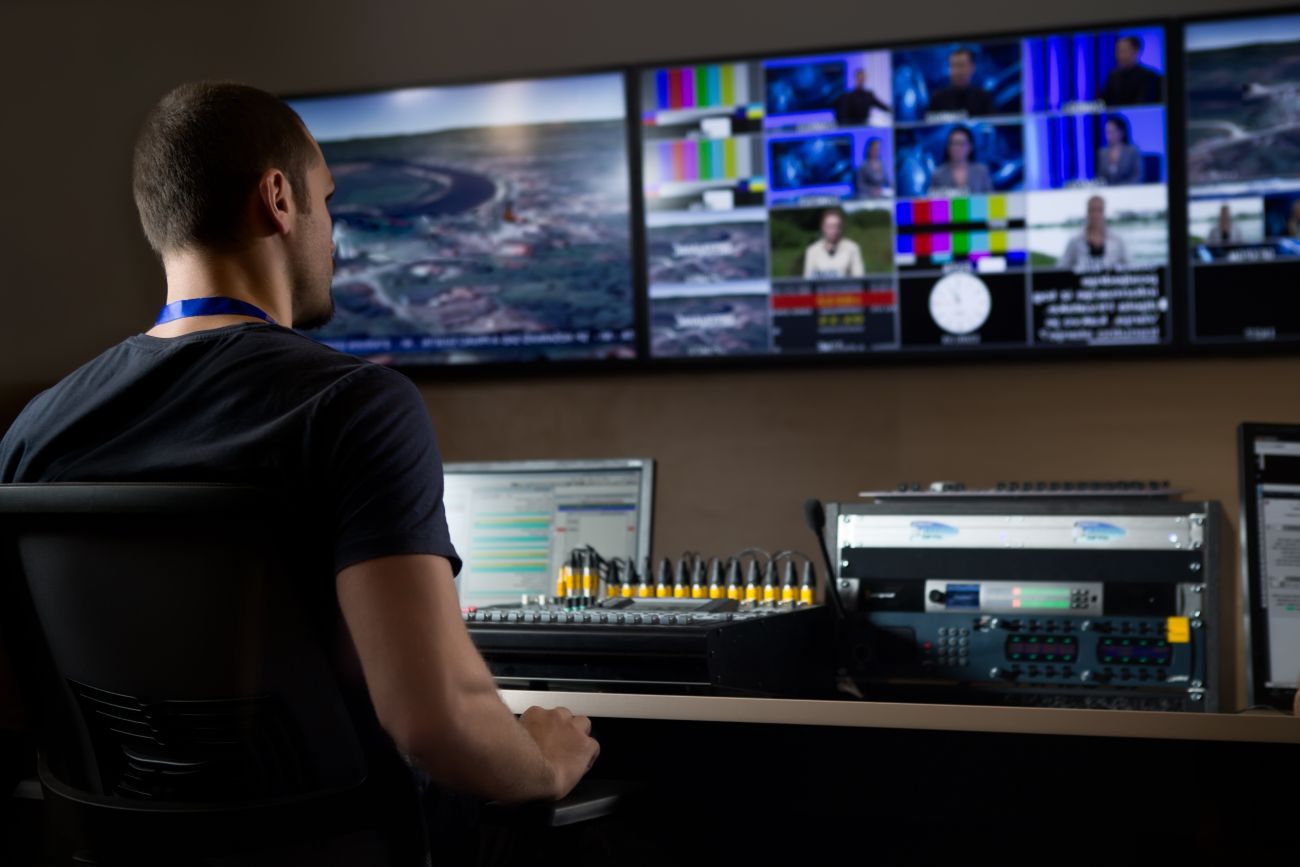 Broadcast Engineer
Broadcast Engineer
| Salary Range | Jobs Available |
|---|---|
| $28,100 - $106,700 | 3,000+ |
What Does a Broadcast Engineer Do?

Responsibilities
- Operate audio, video, lighting and broadcast equipment and monitor for quality during radio and television broadcasts
- Operate satellite or other transmitter equipment used to broadcast programs
- Set up and operate electronic equipment for recorded events and live performances
- Test all equipment and troubleshoot any problems
- Convert video and audio to digital formats
- Follow Federal Communications Commission (FCC) rules and other laws
How To Become a Broadcast Engineer: FAQs
The bottom line:
If you possess many or all of those skills, a job in broadcasting could be in your future. This rapidly changing industry offers the opportunity to grow and learn over the course of your career. Ready to get started? Check out the programs offered by SkillPointe’s training partners and take the next step.

Working in broadcasting
Robin O’Neill got her broadcasting break during a heavy production week at WarnerMedia Studios in Atlanta.
"This was a turning point in my career, and it allowed me to follow the technical production path I’m currently on," she says.
The 26-year-old technical manager says she learned almost exclusively on the job, though her production knowledge and quick thinking skills certainly helped.
She also credits good mentors and strong networking skills with getting where she is today.
Here's how a crisis created an opportunity for her.
Find Broadcast Engineer Training In Your Area
Need help reaching your goals?
Explore our Financial Resources page for scholarships, FAQ answers and student support services.
